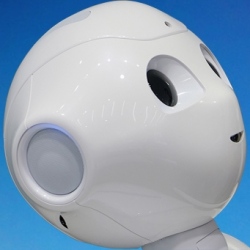
Deep neural networks can be taught things, including how to beat us at our own games. The problem is that training AI systems ties up supercomputers for days at a time. Scientists think they can cut the horsepower and learning times using "resistive processing units," chips that combine CPU and non-volatile memory.
Those could accelerate data speeds exponentially, resulting in systems that can do tasks like "natural speech recognition and translation between all world languages," according to the team.
So why does it take so much computing power and time to teach AI? The problem is that modern neural networks like Google’s DeepMind or IBM Watson must perform billions of tasks in in parallel. That requires numerous CPU memory calls, which quickly adds up over billions of cycles.
The researchers debated using new storage tech like resistive RAM that can permanently store data with DRAM-like speeds. However, they eventually came up with the idea for a new type of chip called a resistive processing unit (RPU) that puts large amounts of resistive RAM directly onto a CPU.
Such chips could fetch the data as quickly as they can process it, dramatically decreasing neural network training times and power required. "This massively parallel RPU architecture can achieve acceleration factors of 30,000 compared to state-of-the-art microprocessors, problems that currently require days of training on a datacenter-size cluster with thousands of machines can be addressed within hours on a single RPU accelerator, ".
The scientists believe its possible to build such chips using regular CMOS technology, but for now RPU’s are still in the research phase. Furthermore, the technology behind it, like resistive RAM, has yet to be commercialized.
